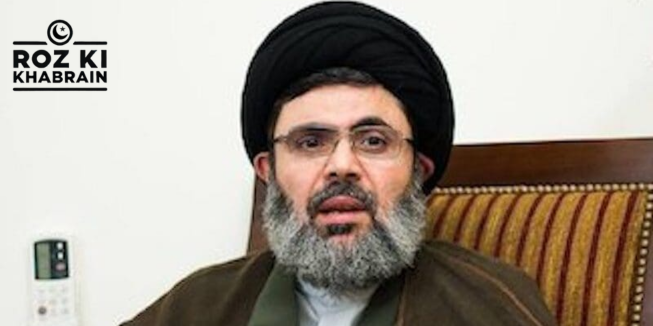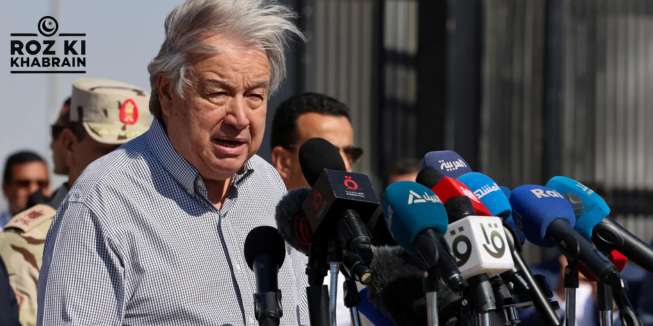BEIRUT/JERUSALEM, Oct 5 – A Lebanese security source reported on Saturday that the potential successor to slain Hezbollah leader Sayyed Hassan Nasrallah has been out of contact since Friday, following an Israeli airstrike believed to have targeted him.
Israel conducted a significant strike on Beirut’s southern suburbs late Thursday, which Axios cited three Israeli officials as claiming was aimed at Hashem Safieddine in an underground bunker. The Lebanese security source and two others indicated that Israeli attacks on Dahiyeh, a Hezbollah stronghold, since Friday have hindered rescue efforts at the site of the attack. Hezbollah has yet to comment on Safieddine.
The loss of Nasrallah’s rumored successor would represent another setback for Hezbollah and its ally Iran. Israeli strikes in the region have intensified in the past year, significantly impacting Hezbollah’s leadership.
On Saturday, Israel expanded its operations in Lebanon, striking the northern city of Tripoli after additional bombings hit the Beirut suburbs, and Israeli troops launched incursions in the south. At least eight strikes targeted Beirut’s southern suburbs late Saturday, including near the country’s main airport, according to Reuters witnesses. Residents of certain buildings in the area received warnings from the Israeli military.
Israel has initiated a rigorous bombing campaign in Lebanon, escalating its conflict after nearly a year of skirmishes with Hezbollah. Previous fighting had been mostly confined to the Israel-Lebanon border, alongside Israel’s ongoing war in Gaza against Hamas.
Israeli military spokesperson Rear Admiral Daniel Hagari stated that Israeli operations in southern Lebanon had resulted in the deaths of 440 Hezbollah fighters and the destruction of 2,000 Hezbollah targets. Hezbollah has not disclosed any casualty figures.
Israel aims to facilitate the safe return of tens of thousands of residents to their homes in northern Israel, which have been subjected to bombardment by Hezbollah since October 8 of last year. The Israeli attacks have significantly weakened Hezbollah’s senior military leadership, including the recent airstrike that killed Nasrallah on September 27.
CIVILIAN CASUALTIES AND DISPLACEMENT
Israeli assaults have reportedly resulted in the deaths of hundreds of Lebanese civilians, with officials stating that 1.2 million people—almost a quarter of the population—have been displaced. A Lebanese security official told Reuters that a strike on a Palestinian refugee camp in Tripoli on Saturday resulted in the deaths of a Hamas member, his wife, and two children. Palestinian media reported that the strike killed a leader of Hamas’s armed wing, identifying him as Saeed Atallah.
The Israeli military did not immediately comment on the Tripoli strike, which occurred in a Sunni Muslim-majority port city that was also targeted during the 2006 conflict with Hezbollah.
In a later statement, the Israeli military confirmed that it had killed two Hamas members operating in Lebanon but did not specify where. There was no immediate response from Hamas regarding these claims.
In northern Israel, air raid sirens prompted residents to seek shelter due to rocket fire from Lebanon. Hezbollah claimed to have launched missiles at what it described as “ATA company for military industries near Sakhnin base,” near Haifa, though the details of this claim remain unclear. The Israeli army reported that two projectiles crossed into its territory from Lebanon; one was intercepted, while the other landed without causing damage.
The violence escalated as the anniversary of Hamas’ October 7 attack on southern Israel approached, which resulted in 1,200 fatalities and about 250 hostages, according to Israeli figures. Israel’s subsequent operations in Gaza have resulted in nearly 42,000 Palestinian deaths, according to Gaza’s health ministry, displacing almost the entire population of 2.3 million in the enclave. The civilian toll has triggered widespread international protests, with thousands demonstrating in major cities globally as the anniversary nears.
CONSIDERING RESPONSES TO IRAN
Iran, which supports both Hezbollah and Hamas and has lost key commanders from its Revolutionary Guards Corps to Israeli airstrikes this year, launched a series of ballistic missiles at Israel on Tuesday, causing minimal damage.
Israel is currently deliberating its response options. Hagari confirmed that two Israeli airbases were hit on Tuesday but remained operational, stating that Israel’s political leadership would determine the timing and nature of any response. Israeli Prime Minister Benjamin Netanyahu emphasized in a pre-recorded video that no country would tolerate such attacks on its citizens and affirmed Israel’s right to defend itself and retaliate.
Oil prices have surged in response to concerns about a potential Israeli strike on Iranian oil facilities. U.S. President Joe Biden urged Israel on Friday to consider alternatives to attacking Iranian oil infrastructure. Meanwhile, U.S. Army General Michael “Eric” Kurilla, the top U.S. general for the region, is visiting the Middle East, although specific details about his itinerary or confirmation of reports regarding his arrival in Israel for consultations with military officials have not been disclosed.




